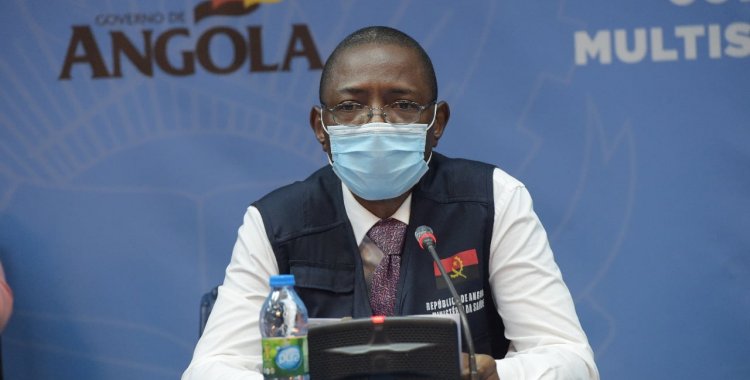Franco Mufinda was speaking in statements to the press on the sidelines of an act celebrating the World Day for Universal Health Coverage, which brought together representatives of the Ministry of Health and the World Health Organization (WHO) in Luanda.
The government official stressed that there is an increasing need for infrastructure in response to population demographic growth, for which the Government drew up the Integrated Plan for Intervention in Municipalities (PIIM) with a view to the emergence of health posts, health centers and municipal hospitals in some parts of the country, which are emerging.
"Against this fact, unfortunately, covid-19 emerged at the end of 2019, which ended up shaking an entire project, in itself, which was challenging, which we must recognize that our health is still challenging", he said.
According to Franco Mufinda, resources that should be dedicated exclusively to building new infrastructure to reduce the impact of malaria, tuberculosis, HIV/AIDS and other endemic diseases in the Angolan community, "in some cases, were diverted to support this pandemic" .
"We are managing to control [the pandemic] with the emergence of vaccines, but also daily calling for the use of individual and collective protection measures to be observed. to have such universality more and more propagated", he stressed.
In addition to infrastructure, Franco Mufinda also highlighted the challenge of human resources, to make them more functional, as well as that of technology, namely the support for diagnosis and the accommodation of people.
"It is precisely on this that we must work and think a lot", underlined the Secretary of State for Public Health, stressing that health promotion is a challenge that must involve the population more and more.
"When we talk about health, it is in the broadest sense, not just the absence of disease, health is the economy, it is spiritual well-being, social well-being, environment, housing, access to water, basic sanitation. have all these elements in place (...) we believe that we can avoid more diseases, then yes, we can talk about health. I repeat, health is not the absence of disease," he said.
Franco Mufinda also defended that it is also necessary to look at population growth and discuss the financing model.
"We tend to have free healthcare, our social model, then in [19]92 the private sector appears, it gives this free choice to our population, it also brings the elements of what is free, there is not always a discipline in consumption, we think which is another debate, another discussion, turns out to be a challenge", he stressed.
Access to supplies, medications "there at the user's feet" were also situations pointed out by the Angolan government official in the challenges for the universality of health in Angola.
"There is a lot of work for the emergence of the medicine factory that we must have here, it is an appeal that the President of the Republic left, we must have here, to manufacture essential medicines and the specialization of human resources, this is also another challenge, which we must have specialized people to fully open the doors and universalize health", he referred.
Franco Mufinda: covid-19 prevented construction of new hospital infrastructure
The Secretary of State for Public Health said that the covid-19 pandemic made the construction of new hospital infrastructure unfeasible, one of the challenges for the universality of health services in the country.







